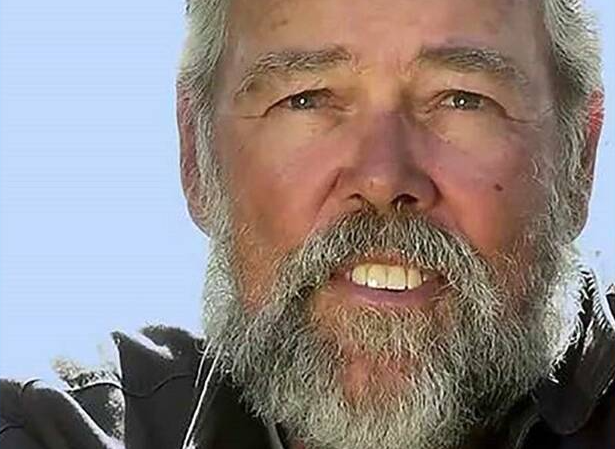Ken Balcomb, a champion of whales and a fierce advocate for the endangered southern resident killer whales in the Salish Sea, has died.
Balcomb, founder and senior scientist at the Center of Whale Research in Friday Harbor, Washington, was 82.
“Ken was a pioneer and legend in the whale world, but more importantly he was the North Star, a guiding light,” the centre said in a statement on Thursday.
“Over half a century of whale research and advocacy, he lit a path for tens of thousands to follow. He was a scientist with a deep-rooted love and connection to the whales and their ocean habitat. He inspired others to appreciate both as much as he did.”
Balcomb spent much of his life documenting the lives of the southern resident orcas, whose population is down to 73 largely because the scarcity of their main food source — chinook salmon — but also because of contaminants and ship noise.
Balcomb started the annual orca survey in 1976 and determined that resident orcas needed more food in a healthy habitat to survive. His message was “No fish, No Blackfish” — no chinook salmon, no southern resident orcas.
The Center for Whale Research survey is the longest study focusing on the southern resident population, and it continues.
“Ken’s goal was always for [the centre’s] research to continue for 150 years, provided there were whales to study,” said the centre. “All of us at the Center for Whale Research share Ken’s vision and mission to preserve and protect the magnificent southern resident killer whales.
“He often said about the critically endangered Southern Residents: ‘I’m not going to count them to zero, at least not quietly.’ ”
The Center for Whale Research said its board of directors and staff are dedicated to continuing Balcomb’s work.
Messages of condolences poured in from both sides of the border.
Claire Mosley of Tofino, who worked for Victoria’s Five Star Whale Watching, said Balcomb’s work with orcas was unwavering.
“Say hello to all our beloved missed friends up there .. J1, J2, L41 … etc. etc. etc. .. so many well recognised dorsals waiting for you.”
Marcie Callewart added: “I know you touched many lives through your years of dedication to protecting our oceans. Your work will be carried on by us all.”
Jay Ritchlin of the David Suzuki Foundation said Balcomb was “instrumental in the science of orcas, helping us all understand what Indigenous people have long known — these whales are members of our families.”
The Orca Network, a Washington based advocacy group dedicated to orcas, called Balcomb one of a kind.
“He spent the majority of his life getting to know and understand the southern resident orcas and fighting passionately on their behalf,” said a statement from Orca Network’s board.
“He knew the southern residents like no other, living beside them and following their movements, births, deaths, and the decline in population leading to their endangered status.”
The network said Balcomb was a navy man who was willing to speak out against whale-damaging sonar, and a researcher brave enough to speak out against the captivity industry, at a time most others wouldn’t. When most deemed it too politically unpopular, he was a tireless advocate for bringing down the four Lower Snake River dams in Washington, it said.
“Ken did this 24/7, to his dying day, working for the orcas, the salmon, and the habitat they need,” said the statement.
Balcomb’s family requested privacy, but issued a statement saying: “the illness that ended his remarkable journey through life was known to him and his family well in advance, and his last days and final breath were drawn in peace and comfort, with professional care, surrounded by his loving family.”
Balcomb, a long-time resident of San Juan Island, died at the Center for Whale Research’s Big Salmon Ranch above the Elwha River, a chinook salmon river on the Olympic Peninsula that flows into the Strait of Juan de Fuca.
Donations in his memory can be made to the Center for Whale Research, .



